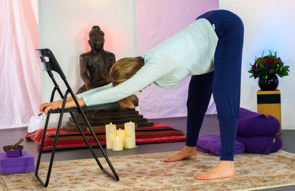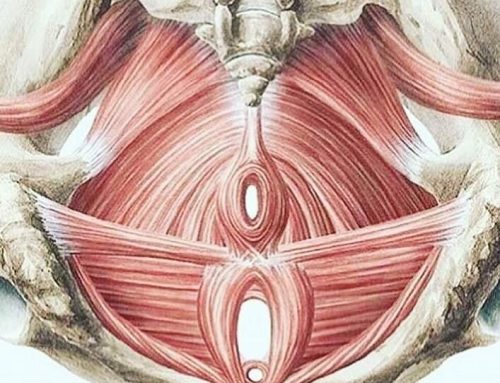15 Things to Avoid In Pregnancy & Labour For a Physiological Birth
( There Are Some Surprises on Here)
By Nadia Raafat
If you really really want to experience a physiological birth, you are going to have to be really diligent with your consent and avoid a lot of situations that are presented as a normal part of the pregnancy experience.
Often after the birth has happened, in the processing period, women will say: ‘I wish I had done X differently or I wish I had refused Y’. They say: ‘If I ever birth again I will avoid that’ or ‘I won’t make that mistake again’.
This list is compiled from many lessons learned along the way.
There is an assumption that the reader has no medical complications and is considered a low-risk pregnancy. That does not mean because you have risks, you have to agree to everything, just that you need to be more discerning – as we all do.
Avoid a Due Date
This is one of the most toxic ideas still being perpetrated by the health system today. As soon as you can eliminate this idea and reframe the end of your pregnancy with a due period, you will be reclaiming your pregnancy for you and all womankind.
Start re-educating family and friends now. Pay NO attention to this ridiculous notion and align yourself with horticultural time instead of industrial time..
Avoid a Sedentary Lifestyle
We spend WAY too much time sitting in chairs, car seats and sofas. Our bodies are designed for movement. A sedentary lifestyle is one of the main reasons for babies in sub-optimal positions causing long ,slow labours. Use a chair to practice yoga on instead.

Avoid Mechanical Kegels and Pelvic Floor Contractions
Endless repetitions of PF muscular contractions creates hypertension – a potential issue in childbirth. Instead discover Pelvic Awareness, the Pelvic Breath and your wonderful pelvic ecology.
Avoid Books that Present Pregnancy & Birth as a Mechanical Process
Books like these do no justice to your wonderful holistic body and pregnancy. They perpetrate the idea of women’s bodies being flawed if they don’t fit the tight mechanical model proposed; due date, blooming second trimester, foetal descent, regular contractions, etc .
Avoid Driving in the Third Trimester
Cars have bucket seats which draw the baby back towards the spine. If driving daily in the third trimester, consider your baby’s position and drive with an upright car seat, plenty of cushions and lots of time on all fours to compensate.
Avoid Fear-Mongerers:
Whether it’s your anxious mother, or birth-traumatised best friend, keep others’ fear at bay. Their anxieties and stories are their experiences – not yours.
Practice strong boundaries with family & friends who dump their anxieties on you.
Avoid Hospital
Yes, that’s right. If you really really want to experience a physiological birth – stay at home. Don’t let wary partners dissuade you. You are in charge on this one – your birth, your decision.
The first intervention is the journey into hospital.
Avoid Induction
I cannot say this enough. Avoid Induction. If there is no genuine medical reason for you to be induced, wait for your pregnancy to start naturally so you can labour at home. The two experiences are universes apart. Being 40+ or being 42 weeks are not genuine medical reasons for induction.
Inductions are one of the mean reasons for the increase in caesarean sections.
Avoid Vaginal Examinations

Especially if they make you feel uncomfortable or vulnerable. They interrupt your flow, require you to be on your back and do NOTHING to help your labour to progress. In fact they impede it. Originally VE’s were only performed when there was an issue that needed investigating. Checking your intimate vagina as part of the hospital registration process is a crude and disrespectful practice that needs to be questioned.
Avoid Chemical Pain-Relief:
This means preparing to expereince and being ready for the intensity of the uterine contractions and labour expereince. You will need a practice that supports you like Yoga , Mindfulness or Hypnobirthing. You will need a present loving partner or a doula for optimum support.
(CAVEAT: When labour is long and difficult Pethedine can be administered in the midwife-led birthing unit. It will help you sleep and not require monitoring or a transition to the labour ward.) If an epidural is required, find out if you can have a Mobile Epidural which will not completely immobilise you and will ensure you remain connected to the sensations.
Avoid Clock Watching
Clocks belong to industrial time, birth takes place in horticultural time.
Take off your watch and cover the clock in your birthing room. The labour will take the time it takes. As soon as you start wondering how long it will take, you invite suffering in. So take it a breath at a time and deal only with what is happening here and now.
Avoid Contraction Timers and Labour Apps
Apps take you away from your embodied internalised connection with the labour, they disempower you by shifting your attention and your trust from yourself and your unique individual body to a piece of technology created for everyone with no personalised awareness.
Avoid CTG Monitors

The research shows that CTGS are linked with increases in intervention. Excessive use of the CTG also usually means your care is compromised; the midwife monitors the labour by reading the graphs instead of assessing and monitoring you. When you are hooked up to the monitor your capacity to move is also compromised because of the straps and trace which has a negative effect on your ability to labour freely and therefore cope.
Avoid Expectations
We cannot plan our birth, like we plan our weddings or other big life events.
As they say the map is not the terrain. Nature is unpredictable; our baby is following its own trajectory and then there is the issue of attempting a physiological birth in a hospital which is like trying to square a circle.
Regard the birth preferences document as representative of your deepest intentions and preparation pathway but please let go of expectations. There is a real and important difference. Turn towards every possibility. Be ready for all manner of twists and turns. Trust in your own ability to expand around and open towards whatever obstacles you meet on the way to meeting your baby with patience and acceptance.
Why?
Because disappointed expectations undermine birth physiology. Every time we are pleasantly surprised we get a hit of serotonin; we feel empowered, confident; able to cope with the pain and the experience.
By contrast expectations that are thwarted rob us of that hormonal confidence; we feel overwhelmed and less able to cope with the intensity of the experience.
Finally…
Avoid Advice (Including Mine)
Don’t let anyone tell you what to do – whether they are your mother, your best friend, your birth doula or your obstetrician. No one knows better than you what you and your baby need in any given moment. You ARE the authority. Take information but also Take responsibility. Make sure your choices are yours and yours alone – made by your body when you are feeling grounded and empowered.
Recognising these pitfalls and taking care to avoid them will increase your chances of a physiological birth and a positive birth experience.
If you have enjoyed reading this list and want to find our more about my embodied holistic approach to Birth Preparation or join my LIVE ONLINE 8 Week Yoga & Mindfulness for Pregnancy & Birth Course for Pregnancy then please visit my Website: https://nadiaraafat.com/becomingmothercourse/
You can also follow me on Social Media at:
https://www.instagram.com/nadiaraafatyogabirth/
https://www.facebook.com/Nadiaraafatyogabirth





